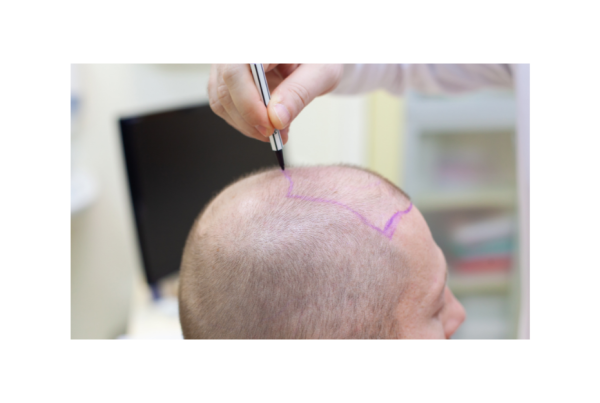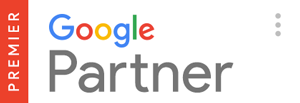PPC campaigns have a very thin margin of error. PPC platforms are known for being complex and finicky—get one aspect of your campaign wrong and you risk losing your entire budget.
Bids, keywords, landing pages, and ad groups are important to your PPC campaign. Ad copy is often overlooked, but it offers the perfect opportunity to be more effective with your PPC efforts.
Copywriting is a complex art that considers your PPC platform, user needs, keywords, branding, and more to bring your customers to purchase.
Customer whims can change in the blink of an eye, which means the copy that worked yesterday might not work tomorrow. That’s why it’s so important to focus on your copy.
Copywriting is pure persuasion. It’s about striking a balance between giving customers incredible value while gaining something in return for your business.
Why Should We Care About Ad Copy?
Nobody wants to write bad copy. Unfortunately, the Google SERPs are full of low-quality copywriting that’s been thrown together in a hurry.
Many brands focus on their keywords and landing pages when they set up a campaign, tossing the ads themselves together without a strategy.
This wastes your hard-earned PPC budget. Don’t be in a rush when you write your ad copy. Remember, the ad copy is what users will see in the SERP. Copy attracts a user’s attention and brings them to your site; don’t downplay the ad’s importance for your campaign.
Aside from attracting customers, copywriting also helps you outdo your Google Ads rivals. High-quality copywriting brings in more leads, no matter your budget. This means you can still get amazing PPC ROI, even when you’re spending less on PPC than your competition.
Good copy also decreases your cost per click and increases the value of every lead. Thanks to good writing, you can get more for your money with just a little bit of upfront planning.
Master the art of copywriting to not only bring in more quality customers but to boost your PPC ROI.
5 Ad Copy Mistakes and How to Overcome Them
Writing isn’t easy. Copywriting is an art that requires constant optimization, adjustment, and practice. Even professional copywriters have difficulty writing the perfect ad copy.
But don’t let that deter you. The best way to improve your copywriting is by seeing what others have done before you. Get more ROI from your PPC campaigns by avoiding these common ad copy mistakes.
1. Automating too much
Google’s Dynamic Search Ads sound like a marketer’s dream come true. The platform will build ads for you, automatically serving the best ad copy for your audience.
While Google’s DSA is valuable, it comes with risks. Your text might render incorrectly or it might not be aligned with your target customer.
This is what happens when you let AI have too much control over your campaign. AI is a great tool, but it can’t replace the human mind.
Invest in quality copywriters to write your ads. Use Google to improve on that copy, but never rely on robots to write all of your content.
2. Poor grammar and spelling
PPC helps brands reach fresh eyes. The problem is that none of these potential customers know your brand. If your audience sees anything off at all, including an honest spelling mistake, they won’t work with your brand.
Customers are more suspicious of brands today. Misspellings and poor grammar signal that you aren’t a trustworthy business with quality service.
There’s nothing wrong with using slang or being a little colloquial, but there’s a big difference between saying “FOMO” in your ad and mixing up “their” and “there.”
Always spell check your ad copy. Free tools like Grammarly or Hemingway will help.
3. Keyword stuffing
PPC platforms run on keywords. It’s tempting to cram as many keywords as you can in your ad copy to show up in more searches. Search engines are smarter than that, though. Keyword stuffing will only decrease your click-through rate.
Keyword stuffing is an outdated and black hat PPC strategy. Both humans and search engine bots are smart enough to see what you’re doing. Keyword stuffing decreases the usefulness of your ad and is off-putting to search engine users.
Yes, you need to target keywords in your ad copy. But it’s about striking a balance. If you wouldn’t click on your own ad, it’s time to rethink your keyword practices.
4. Forgetting ad extensions
PPC ads have character limits. Don’t waste your precious characters giving background information on your product or company. Use ad extensions to communicate the facts so you can focus on your value proposition in the ad copy itself.
In Google Ads, you can set up ad extensions for location, phone calls, messages, sitelinks, callouts, pricing, app downloads, and more. Extensions increase click-through rates and in-store traffic for brick and mortar brands. Don’t forget to set up this free feature to enhance your ad copy.
5. Generic landing page copy
Ad copy has to complement the other elements of your campaign, like the landing page. What are users going to see once they click your amazing ad?
Too often PPC beginners will direct users to a generic home page. This is a wasted opportunity! Always direct users to a relevant landing page.
The landing page and ad copy should include the same elements, as well as a call to action related to the ad copy.
For example, if your Google ad says “free car washes until August 31,” the user expects to see that same language on the landing page. They would also expect to see where they can download a coupon for that free car wash. Anything less will frustrate the customer and lose you a sale.
Deliver on the promises written in your PPC ad. Make sure that copy aligns to what the user expects from you.
The Bottom Line
Copywriting is a skill you develop over time. Boost your writing skills with practice, letting customer data inform your wordsmithing. Avoid common mistakes by focusing on your customer’s needs, giving value at every turn. We know copywriting is hard. Instead of mastering it yourself, rely on our expert PPC team’s years of experience. Get in touch with Logical Media Group to write better ads that bring in more business.








